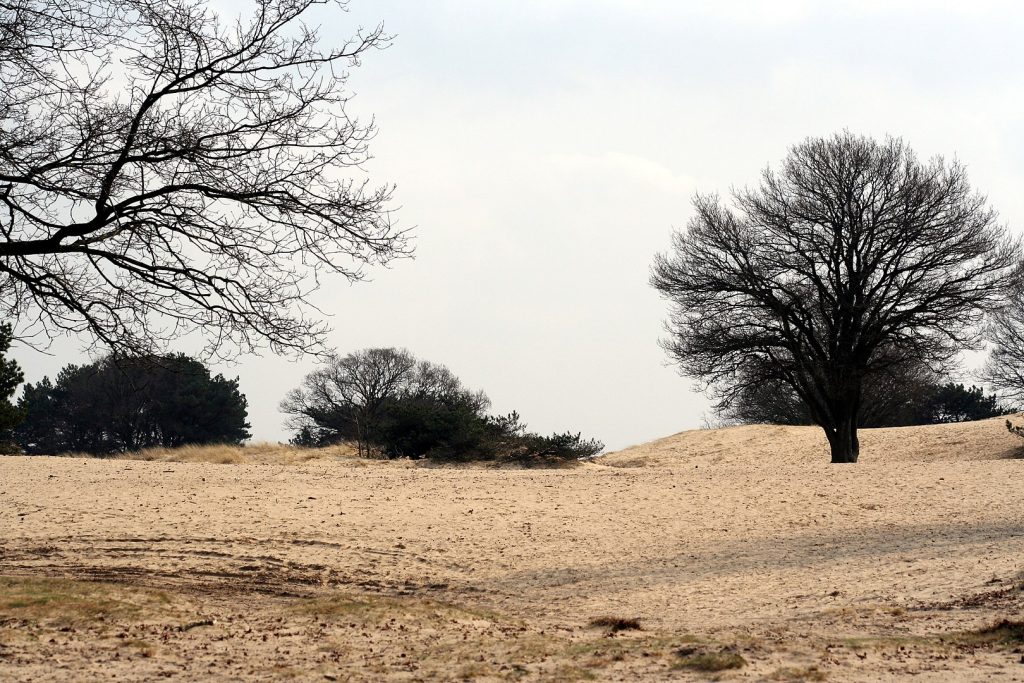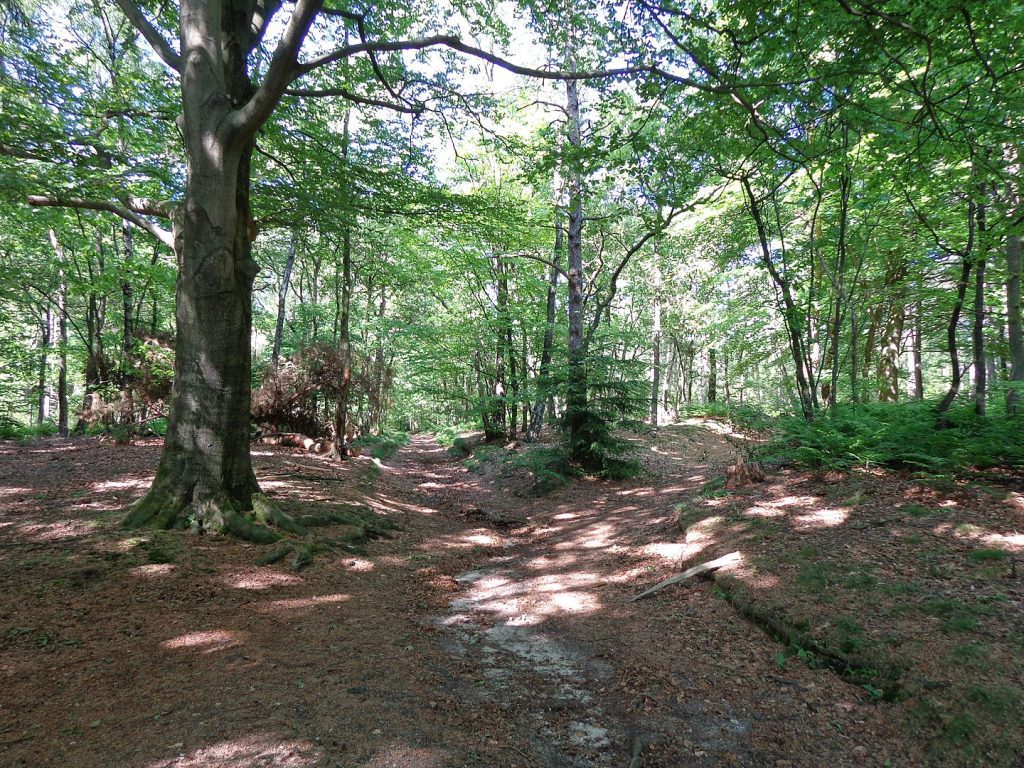Spreekwoorden en Uitdrukkingen (Sayings and Expressions) 15 – Trees Posted by Sten on May 26, 2020 in Dutch Language, Dutch Vocabulary
Now that the zomer (summer) is here, and you may not be able to do anything else but stay in the Netherlands due to the Coronavirus, it’s a great time to explore the Netherlands! What about a wandeling (stroll) among the impressive eikenbomen (oak trees) of the Utrechtse Heuvelrug? Or through the bossen (forests) of the Drents-Friese Wold? Or what about a spreekwoord (saying) and a uitdrukking (expression) related to bomen (trees)?! That’ll be today’s post. Let’s dive right in with the spreekwoord!
For other sayings and expressions in this series, click here.
Hoge bomen vangen veel wind
Literally: Tall trees catch a lot of wind
Great winds blow upon high hills
This spreekwoord has the same meaning as the English equivalent. The more important your position is, the more criticism you get. In other words, the hoge bomen (tall trees) are those in important positions, and the wind (wind) is criticism they receive. It’s a widespread idea and spreekwoord, and apparently is of Chinese origin.
You could see this as “part of the job”, of course: The more responsibility you have, the more accountable you should be. However, you could also put the idea against it that, being in a position of power, no matter what you do, there will always be somebody that thinks you’re doing a poor job.
F.A. Stoet wrote, more poetically, in his 1914 book “Nederlandsche spreekwoorden, spreekwijzen, uitdrukkingen en gezegden” the following about this spreekwoord:
“Evenals hooge boomen, die boven de kleine uitsteken, het meest bloot staan aan den wind, zoo staan personen van aanzien, die hooge betrekkingen bekleeden, bloot aan allerlei beoordeeling, aan haat, nijd, laster en vervolging”
(In the same way that tall trees, which stand above the small ones, are most exposed to the wind, people of standing who occupy a high post are exposed to all kinds of judgment, hate, envy, libel and prosecution.)
This interpretation is more in favor of the hoge bomen, but in Dutch, it could be laid out in both ways. Though I would think, if you already use this spreekwoord, you try to express discontent with all the wind coming in the way of the hoge bomen.
Here’s how we use it in Dutch
Like I wrote above, it could be used either way, though is more likely used in defense of hoge bomen.
De burgemeester krijgt het te verduren, zeg! Was hij maar niet begonnen, de stoplichten aan de Hoofdlaan weg te halen.
– Tja, hoge bomen vangen veel wind.
(The mayor has to put up with quite a lot! If only he hadn’t started taking away the traffic lights on the Hoofdlaan.
– Well, tall trees catch a lot of wind.)
On to the uitdrukking!
Door de bomen het bos niet meer zien
Literally: To no longer see the forest because of the trees
To be unable to see the wood/forest for the trees
This clever uitdrukking means that you lose sight of the big picture because you focus too much on the details. It’s such a simple uitdrukking, but it has a lot of meaning. The English version is pretty much equivalent! But where does this uitdrukking come from?
It actually comes from Germany. The dichter (poet) Christoph Martin Wieland wrote it in his work Musarion from 1768. The context is as follows:
Die Herren dieser Art blend’t oft zu vieles Licht, / Sie sehn den Wald vor lauter Bäumen nicht
(Gentlemen of this kind are often blinded by too much light, / they can’t see the forest for all the trees).
From there, it spread into all kinds of languages. Neat!
Here’s how we use it in Dutch
In Dutch, we use it in the same way as everywhere else. It is not tied to a value judgment, so it is not by itself positive nor negative in its use. Here’s an example.
Met meer dan 25 verschillende soorten pasta in de supermarkt ziet Rik door de bomen het bos niet meer.
(With more than 25 different kinds of pasta in the supermarket, Rik can no longer see the forest due to the trees.)
What do you think of the uitdrukking and spreekwoord? Do you use it in your language? Let me know in the comments below!

Build vocabulary, practice pronunciation, and more with Transparent Language Online. Available anytime, anywhere, on any device.





